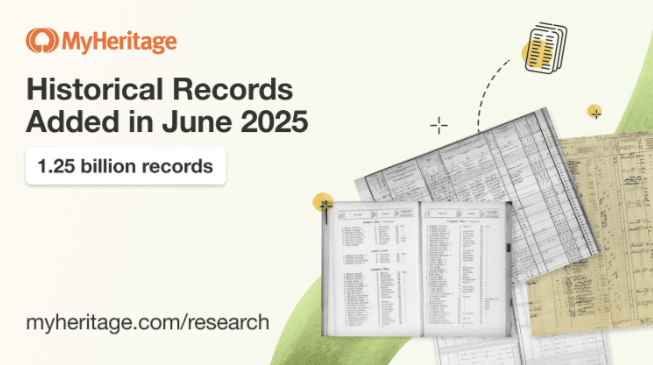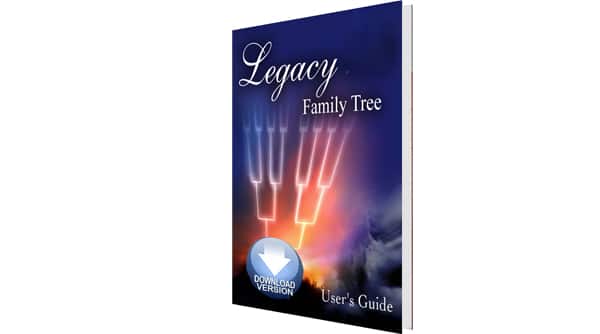Your cart is currently empty!
Thank you Research Guidance, GenealogyBank.com and FamilySearchIndexing.com
Today I had another Genealogy Happy Dance – thanks to the combination of Legacy's Research Guidance, the indexing volunteers of FamilySearchIndexing.org, and the online historical newspaper collection at GenealogyBank.com.
Christian Gross, husband of my 3rd great-grandaunt (click here to learn how to set relationships in Legacy) died sometime after June 7, 1900. He was living in Philadelphia, Pennsylvania in the 1900 census.
My goal was to find when and where he died, so I clicked on Legacy's Research Guidance tab and chose the goal of "Death".
One of Legacy's top-ranked suggestions for this goal was to search the Philadelphia City Death Certificate collection. The red checkmark in the Online column shows that this collection can be searched for free online. Clicking the Online button took me directly to FamilySearch's Record Search.
FamilySearch Indexing
Thanks to the volunteers of FamilySearchIndexing, I located the Philadelphia Death Certificate collection, did a search for any Christian Gross individuals who died after 1900, and quickly located a terrific possibility for my man. Although the death certificate did not list Christian's birth date, it did tell me when he died and how old he was when he died. Using Legacy's date calculator, I entered what I knew and Legacy calculated his birth to be March 4, 1821. This is the exact birth date I had previously discovered for Christian!!
(The Date Calculator is accessed by clicking on the Calendar button in Legacy's main toolbar.)
GenealogyBank.com
Now that I knew when Christian died, I wanted to locate an obituary for him which could identify his parents. Obituary research is exciting because of the potential discoveries but it often takes a long time. First you have to identify the possible newspapers in the area for the time period. Then you have to locate a repository that is willing to search it for you or lend it to your library via inter-library loan. Finally you have to read each page of the newspaper to try to find the obituary.
Thanks to GenealogyBank.com, this is no longer necessary. GenealogyBank.com has scanned over 150 million newspaper articles from the years 1690-1980 from American newspapers (this won't help me with my UK and Germany ancestry…). Browsing through the title list, I was in luck because they had scanned hundreds of years of Philadelphia newspapers. I did a quick search for Christian Gross and nearly instantly 111 matches were returned. On some subscription websites you have to pay to get enough information to know if these matches are related, but at GenealogyBank, they gave me the date of the article and even a preview of the article. Two of the first five hits were dated one day after Christian Gross died and so I knew I had the right guy.
Clicking on the link took me to the subscription page where they listed an introductory special of $9.95 for 30 days of access. Comparing this price to the nearly $100 I usually spend to obtain an obituary, this is a great deal. I signed up, but somehow didn't get the introductory price. Rather I paid $19.95 for the month, which is still a great deal. Regardless, I now had access to the entire article which the website let me download as a .pdf.
My final and most exciting step was to add the new information to Legacy, including the source. Using Legacy's SourceWriter, I chose the "Newspapers > Online images (issued by unrelated content provider)" template and easily entered the citation information which look like this:
All in all, this was a very successful experience, but I couldn't have done it quite as easily without the help of Legacy's Research Guidance and Date Calculator, FamilySearch's Indexing project, and GenealogyBank. Thanks everyone!



Julie (and others):
GenealogyBank and similar sources may not be useless to you, even if they don’t have newspapers (yet) covering your locality, depending upon the nature of your problem. I was quite surprised to find several references in many different newspapers across the country to the 1908 illness (and ultimate death from cholera in the Phillipines), of my father’s first cousin (surname Jones), as well as to an 1890s death of a person of another surname in rural Pennsylvania. There was a “wire service” back then that broadcast news and many papers picked the info up and printed it. So, if the manner of death was somewhat unusual, don’t be surprised to find a rural Kansan’s death discussed in an Oregon or Georgia newspaper.